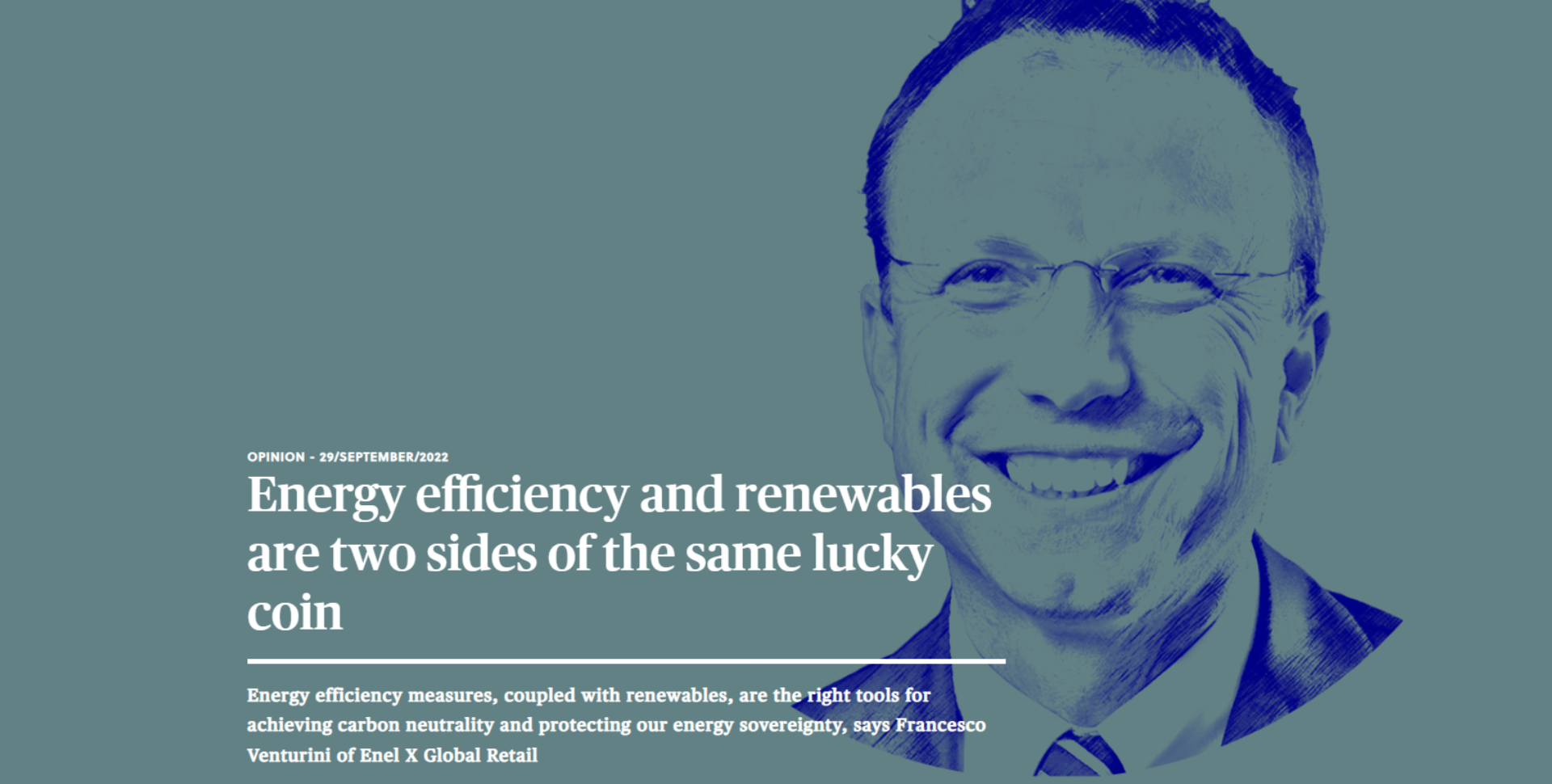Energy Efficiency and renewables are two sides of the same lucky coin

Energy efficiency measures, coupled with renewables, are the right tools for achieving carbon neutrality and protecting our energy sovereignty, says Francesco Venturini of Enel X Global Retail ahead of the first edition of the European Energy Efficiency Day.
Citizens, businesses and local governments must join forces to equip themselves with facilities for the production and self-consumption of energy from renewable sources by promoting virtuous behaviours.
Today, market transformation is happening in a very disruptive way. The historical events of the past six months demand an impressive acceleration of the trajectory outlined by the European Green Deal in 2019. Looking back at the past eight years, global investments in clean energies have blossomed to $371 billion, an increase of approximately $60 billion compared to 2014 levels.
Is there enough to go around? The answer for most of us is simple: no.
The Ukraine conflict and its consequent war on prices are proving that our society does not have access to abundant, reliable, cheap and clean energy—placing its economic and social progress at stake.
But we still have a lucky coin in our pocket: energy efficiency measures can substantially reduce Europe’s carbon footprint if combined with consistent investments in renewable energy.
Read the full article here
More information on European Energy Efficiency Day here & Register here.



